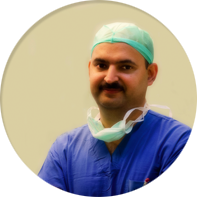Debunking Common Myths Of Bariatric Surgery
Bariatric surgery, or weight loss surgery, is a long-term treatment for weight loss and its comorbidities. In this article, we’ll try to bust some common myths about bariatric surgery.
Myth #1– In Weight loss surgery fat is removed from the body during the procedure
Fact – Weight Loss surgery is an internal abdominal surgery that is performed by using a laparoscope. It involves reducing the stomach’s capacity and the absorptive length of small intestine, resulting in a caloric deficit and weight loss.
This weight loss is gradual and occurs over the course of a year, as a result of fat burning by hormonal and metabolic adjustments in the body. In weight loss surgery procedure there is no immediate weight loss or fat removal. However, On the other hand weight loss surgery helps in maintaining the weight for long time and It prevents weight regain and also helps in reversing of many metabolic conditions like hypertension, diabetes, and metabolic syndrome.
Myth #2– Weight loss surgery is painful
Fact – Weight loss surgery is a laparoscopic procedure that is done under general anaesthesia. During the procedure patient is unconscious and totally unaware. There is mild pain after surgery that is tolerable and controlled with pain relievers, and it goes away in 1-2 days. Within a week of the treatment, patients are usually able to resume their normal routine and are totally pain free at that time.
Myth #3– Weight loss surgery is risky
Fact – Weight loss surgery or bariatric surgery is an elective surgery and the risk associated with bariatric surgery is the same as for any other elective surgery like a cholecystectomy or a Caesarean section. The surgery is done by the minimally invasive route and makes use of various high-tech devices like staplers which make the surgery quick and painless. This also decreases the chances for human error and increases the safety of the procedure. This also reduces the risk for human error and increases the safety of the procedure.
Myth #4–Weight loss surgery may result in weakness or extra weight loss
Fact – Weight loss surgery is a long-term weight management procedure. It causes a caloric deficit in the body which activates the hormones that helps the body burn fat. Within 12-18 months, typically 60-90 percent of the excess weight is lost gradually and consistently.
Due to the reduced ability for taking food, there may be a risk for protein and vitamin deficiency which can be avoided by taking adequate supplements for 6-12 months after the surgery. There is a very small chance of gaining weight after weight loss surgery, and this is particularly common in malabsorption surgeries like gastric bypass and in persons who don’t take the needed vitamins.
Myth #5– Weight loss surgery may impair family life or fertility
Fact – Many metabolic problems associated with obesity, such as PCOD and infertility, can be corrected by weight loss surgery. It helps in the regularisation of menstrual cycles and the resolution of PCOD in women, as well as increasing the chances of a normal conception. For Males, Weight loss surgery improves sperm count and natural libido due to increased testosterone levels. As a result, weight loss surgery may be regarded as a fertility enhancer procedure rather than the contrary.


 +919011100010
+919011100010 





 Dr. Satish Pattanshetti – Bariatric Surgeon in Pune
Dr. Satish Pattanshetti – Bariatric Surgeon in Pune Dr. Neeraj V Rayate – Bariatric Surgeon in Pune
Dr. Neeraj V Rayate – Bariatric Surgeon in Pune